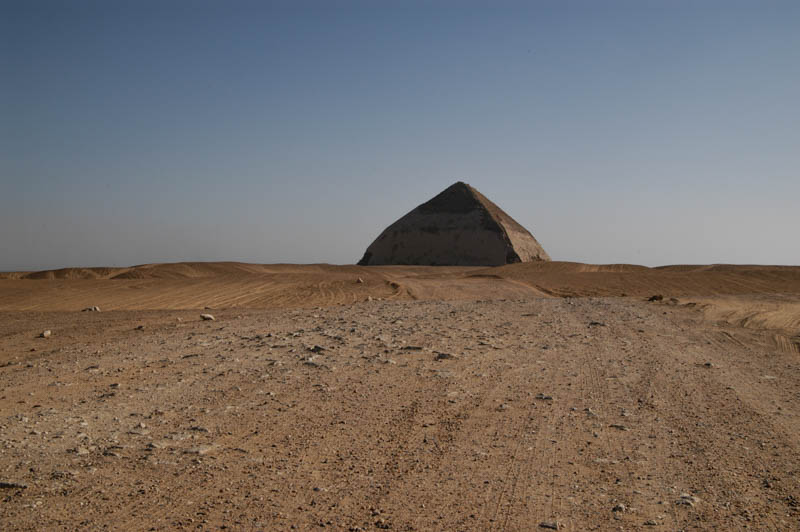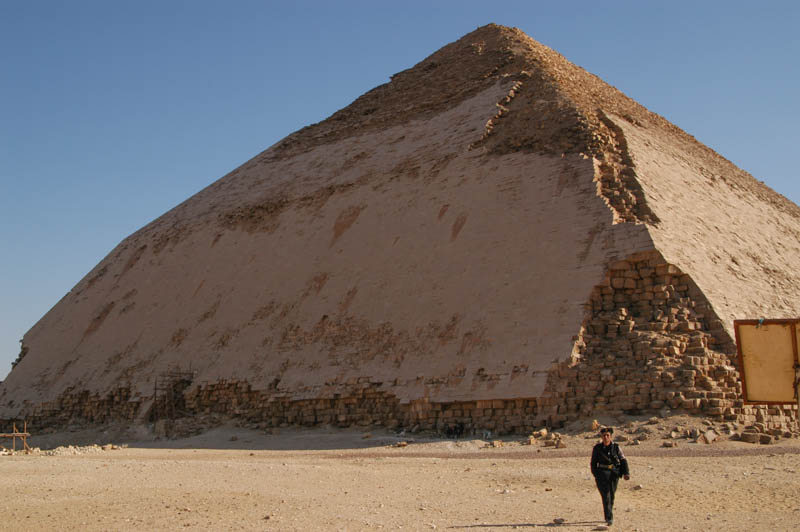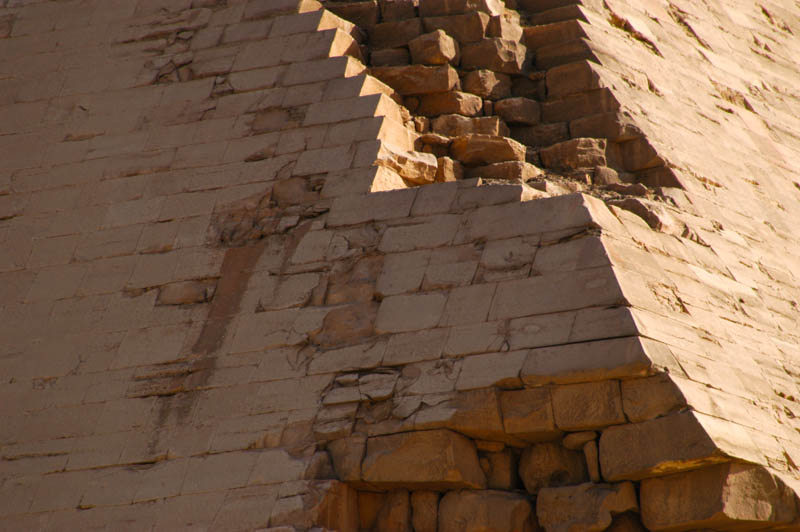
The second of Sneferu’s pyramids in Dashur, the Bent Pyramid is a very obvious example of the trial-and-error that accompanied pyramid building in the Old Kingdom.
Unlike any other pyramid in Egypt, this one has an abrupt change in angle about 3/4 of the way up. The lower part is very steeply sloped (52 º) while the top part has a shallower slope. Despite the many theories (it started to collapse, it was too hard to build, the architect lost his nerve), there is no real consensus as to why the pyramid is built the way that it it.

In fact there is very little known about why Sneferu built two pyramids in Dashur, less than a kilometer apart — and an additional pyramid at Maidum — all completed in his lifetime. He is surely unique in having enough time in his life to built three pyramids. His son, Cheops (Khufu), managed only the single one at Giza, grand though it is.
It is possible that the sudden collapse of Sneferu’s first pyramid, at Maidum (also at 52 º), prompted the abrupt change in the Bent Pyramid. Then, the imperfection of the Bent Pyramid prompted the building of the perfect, if shallow, Red Pyramid.
One final theory — the oddest of the bunch, I think — states that the pyramid was built with two angles deliberately, to explicitly promote a sense of duality in the pyramid. In an attempt to fulfill the “principles of mathematical harmony and sacred geometry” (West). I classify this in the same arena as people who claim pyramids are mystical foci for mental powers, or built by aliens.

It’s also possible that he was simply running a pyramid assembly line (according to a note in Rough Guide) so that he would leave behind a series of partially- or fully-finished pyramids that could be used by subsequent kings without the requisite ten or thirty years on the throne to build their own.